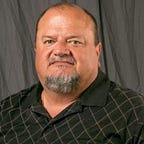As a Californian, son of a PG&E lineman, and head of the union that represents more than 25,000 frontline utility workers, I recently found myself in an extremely uncomfortable position: admiring a tweet written by Ted Cruz. The Senator from Texas had just emerged from his Cancun vacation to express outrage over the abject failure of energy deregulation in his state.
“This is WRONG,” he tweeted. “No power company should get a windfall because of a natural disaster, and Texans shouldn’t get hammered by ridiculous rate increases for last week’s energy debacle. State and local regulators should act swiftly to prevent this injustice.”
My finger itched to press the like button, but I refrained — because the truth is that the chaos and loss of life that happened in Texas was 100% preventable. Texas is learning the same lessons about the danger of deregulation that California learned decades ago — and they didn’t have to learn the hard way.
Our union and others are part of CUE — California’s 45,000 member Coalition of California Utility Employees. As frontline energy workers we fix downed lines, maintain gas systems, generate power, staff call centers, perform maintenance and do everything we can to keep California’s energy supply reliable and safe. In other words, we work hard to prevent what happened in Texas from happening here. We have a front row seat on how policy measures — often dreamed up in cozy corner offices and Washington think tanks — impact people on the ground.
We also participate in regulatory and legislative proceedings, and since 1994 we have strongly opposed energy deregulation. Our first official comments to the California Public Utilities Commission on the subject predicted that deregulation would lead to price spikes, blackouts, and inadequate investments in maintenance and reliability.
Our comments were disregarded — high-paid lobbyists and proponents of a “free market” energy policy opposed us and, unfortunately, our elected leaders listened to them. California’s Public Utilities Commission decided to deregulate our energy market in 1995, and the legislature codified that decision in 1996 (in Assembly Bill 1890). Texans watched closely and emulated our model. They implemented the same deregulated market design shortly after.
A few years later, the 2000–2001 energy crisis hit: price spikes and blackouts left Californians stranded in elevators, homes and businesses darkened, medical equipment nonfunctional, and the world’s sixth largest economy frozen in place. PG&E, our largest utility, went bankrupt as consumers were hit with a $42 billion bill. Tens of millions of lives were disrupted, and peoples’ health and livelihoods were put at risk.
Senator Cruz and his cohort chose not to see that as the red flag it was — because the Texas energy market he lamented worked exactly as it was designed. The only difference between the two crises was that in California the energy scarcity was caused by the intentional withholding of power from the market by Enron (and others), and in Texas the scarcity was caused by regulators refusing to require providers to invest and plan for cold weather. Either way, this is what happens when policymakers choose deregulated market ideology over regulation.
The truth is that we need government regulation of our power companies to ensure that lines are properly maintained, that prices are kept under control, and that the system operates for the public good as opposed to private profit. As has been pointed out by many economists, electricity is not a commodity akin to any other. The entirety of our economy, from life-saving health care to water treatment facilities to essential services like grocery stores, banks and gas stations depends on it. This is not true of cat litter, q-tips or avocados. Electricity deserves to be considered, and regulated, differently.
After I stopped myself from liking Senator Cruz’s tweet, I thought about what kind of reply would be productive. I was tempted by “I told you so” but decided against it. Instead, I should have sent this: @SenCruz, I agree with you. Regulators should step in. Texas and California offer important lessons for evangelical capitalists: it’s time to listen to the people on the ground.
